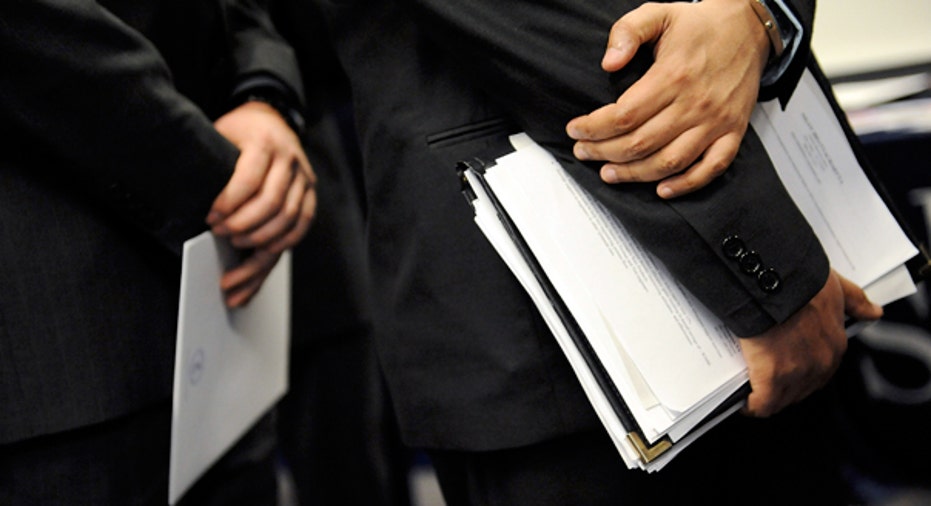How to Master Employers’ New Interview Method

The standard Q&A-style interview is going the way of the typewriter as employers are increasingly using case study interviews to determine the compatibility of candidates—and job seekers need to be prepared.
A case study interview allows candidates to demonstrate their ability to approach and solve a given business problem, how they would identify key issues and their process for finding a solution. Experts claim the method provides employers with a better indication of applicants’ problem-solving skills and how they would fit in to their office environment.
According to a recent survey from member-based advisory firm CEB , 87% of CFOs believe they don’t have the right talent mix on their teams to achieve company goals. However, case study interviews were found to actually help companies test candidates on hard-to-teach and hard-to-observe competencies for a particular job.
While the survey shows that only 30% of finance departments currently use the case study-style interview, experts say it’s a growing trend in the screening process.
“[They] allow us to see how candidates may analyze and solve problems for clients and gives us a better understanding of a candidate’s thought process and ability to think critically,” says Jill Smart, chief HR officer for management consulting company Accenture.
While traditional interviews often rely on an employer’s “gut feel” of a candidate with the decision possibly based on natural biases, case study interviews provide a more objective look at their potential success on the job, says Ken Lahti, vice president of product development and innovation at talent management group SHL.
“The move toward more elaborate case study interviews, business cases, and simulations is part of the scientific evolution of the recruitment process that improves employers’ ability to predict who will perform and who will stay,” he says.
What Candidates can Expect
A typical case study interview presents candidates a real business situation and gives them a chance to explore the underlying causes of the problem and then suggest recommendations for a remedy, according to Smart.
“It is fair to assume that the case scenario may include some level of statistics, business metrics or other numbers that need to be addressed when working through to a conclusion and candidates should be prepared to handle basic calculations quickly and accurately,” she says.
Candidates may be provided pre-interview material or asked to put together a presentation for an interview panel in advance, says Kruti Bharucha, senior director at CEB.
“The pre-reading helps evaluate whether the candidate can make sense of a large amount of data and extract the best insights, the presentation itself assesses the candidate’s ability to express their thoughts to an audience,” she says. “All of these competencies are ‘must-haves’ for success at large, global organizations and these test skills that employees will need to demonstrate every day on their jobs.”
Common Mistakes to Avoid
Candidates often make the error of trying to second guess the interviewers and provide what they think are the “right” answers, says Bharucha.
“Don’t go in thinking that you need to nail an answer--ask intelligent questions, sound confident but not arrogant and help the interviewer understand how you’re thinking about the problem,” she warns.
Listen carefully to the scenario that is presented and ask clarifying questions, take notes and summarize the scenario and objectives back to the interviewer, recommends Smart.
“While analyzing the scenario and working through it to a potential solution, don’t forget to engage the interviewer,” she says. “Talk through your thought process. Also, remember, there are often several credible approaches and ways to address a situation. It is okay to be creative and to balance the creativity with practicality.”
How to Prepare
It’s important to gather as much information about the business situation, their mission, and the expectations of the interview as possible to properly prepare and enter with the right mindset, says Lahti.
“Treat it like the first day of work and have fun with it,” he says. “New graduates have less work experience to rely on, so this type of interview provides them a great opportunity to demonstrate how they can apply their competencies–and ultimately add value to the organization.”
Many employers offer case interview workshops and on-campus career services can help guide them on how to best prepare, and Smart suggests students and grads practice a variety of sample questions and rehearse with someone on how they would talk through the solution.
Interviewing in any format can be intimidating, but grads will hopefully be able to reflect their competencies for the position and have a better understanding of the job they are applying for, says Bharucha.
“Case studies can often have a fairly involved process so use the extra prep and discussion to get to know the organization better, as well as the interviewers – all this gives you a view into the type of organization you’re getting into and will help you find a job that’s right for you.”